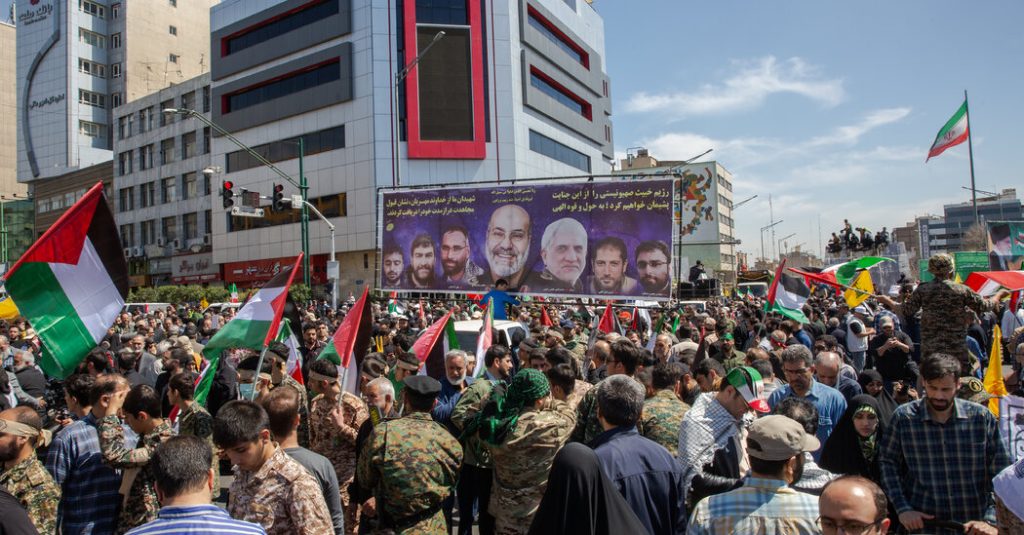American intelligence analysts and officials are expecting Iran to strike multiple targets inside Israel in the coming days as retaliation for an Israeli bombing in the Syrian capital on April 1 that killed senior Iranian commanders. The United States has military forces in the Middle East, but Iran is not expected to target them to avoid direct conflict with the U.S. Israeli and Iranian officials anticipate this attack could open a new volatile chapter in the region due to the lack of direct communication between the two countries and the heightened risk of a wider conflict if misreadings occur.
President Biden expressed that a military attack on Israel by Iran is expected soon, but he warned Iran against making such a move. The United States has reaffirmed its commitment to Israel’s defense and indicated readiness to support and help defend Israel against any Iranian attacks. The Israeli military has been placed on high alert in anticipation of a strike from Iran, and several countries have issued travel advisories for their citizens in Israel and the surrounding region.
Details about the potential Iranian attack on Israel are closely guarded, but it is believed to involve drones and missiles due to Iran’s arsenal in the Middle East. The U.S. State Department has restricted its employees’ movement in Israel, while Britain, India, and France have also issued travel warnings for their citizens in the region. The form, targets, and timing of the Iranian attack remain unclear, but the U.S. and Israeli officials are prepared for various scenarios, with the top American military commander for the Middle East coordinating a possible response with Israel.
In the event of an Iranian attack, Israeli officials have expressed readiness to respond appropriately. Iran has vowed revenge for the April 1 airstrike in Syria, but it aims to balance its response to avoid a full-fledged war with Israel or a strong American attack. Both Iranian and U.S. leaders have indicated a desire to avoid an all-out conflict, despite previous clashes and hostile rhetoric. The Israeli military remains vigilant and prepared for any potential actions from Iran.
Israel believes it can generate international support for a retaliatory strike by emphasizing that it was defending itself after the April 1 airstrike in Syria killed Iranian commanders. The Biden administration has expressed concerns about clashes in Israel’s northern border escalating into a broader regional conflict, urging Israel to do more to address the humanitarian crisis in Gaza. In response to pressure, Israel has allowed humanitarian aid to enter northern Gaza and pledged to increase aid distribution to the region.
After Israeli airstrikes killed aid workers on April 1, President Biden warned that the U.S. could withhold military support for Israel unless it took steps to protect civilians and provide adequate supplies for Palestinian civilians. Israel’s defense minister pledged to increase aid shipments to Gaza and open the port of Ashdod to accept more aid shipments. The United Nations is monitoring the situation and working to ensure that the aid is distributed effectively to alleviate the suffering of civilians affected by the conflict.


